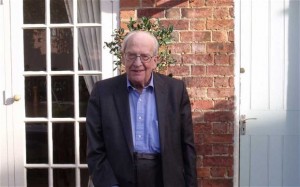 I was saddened to read of the death of Sir Alan Peacock, a most influential figure in the scholarship, and application, of economic analysis of the arts. The Daily Telegraph’s obituary is here.
I was saddened to read of the death of Sir Alan Peacock, a most influential figure in the scholarship, and application, of economic analysis of the arts. The Daily Telegraph’s obituary is here.
I remember back to when I first began exploring the field of cultural economics, and his (then recent) book Paying the Piper was one of the first I picked up on the subject. Years later when the International Journal of Cultural Policy invited a group of us to write a short essay on the book that had most influenced us, that was my choice. Autobiographical, it covered his aspirations (and successes) in music, in research, and his experience, often rocky, in the public sector. I wrote:
First, Peacock applies to arts policy what is best about the economic method. Not complex models of abstract beings interacting in perfect markets, but rather the key insights of the economic approach: that individuals (consumers, artists, administrators, politicians) respond to changes in incentives; that all allocation decisions involve opportunity costs (let no one call a program ‘underfunded’ unless they are prepared to state which programs are overfunded); that in most cases markets are the most effective way to ensure resources flow to their most valuable use; and that competition is a positive force, leading firms (as if guided by an invisible hand) to search for and adopt those practices and innovations that will best please their customers.
Second, he has an insider’s understanding of how arts organizations and political institutions work. Rather than simply lament how the strategic responses of administrators will often cause the best-laid plans of economic advisors to go awry, he puts careful thought into how to present economic information and ideas such that it might persuade and carry the day. It doesn’t always work, and he is candid regarding those episodes where his ideas were, in the end, dismissed. Any economist who has taken leave to work in the public sector will have similar tales to tell, but I found in this book a much more objective take than I have seen elsewhere in economists’ memoirs.
He was a liberal in the tradition of Adam Smith – humane, aware of the limitations in what we can know, in what our institutions can achieve. He loved conversation, and at meetings of the Association for Cultural Economics International was always active in engaging young scholars presenting their research (he was very generous when I nervously made my first presentation to that group). He is missed.

Leave a Reply